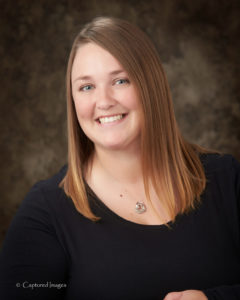
Natural disasters, family changes such as divorce, death, serious injury, or community violence can be traumatic for both children and adults. Everyone needs time to process the traumatic events. Children often experience disasters differently than adults and they need to have developmentally appropriate explanations of them.
Children can experience the effects of disasters months and years after the events. Some will express the effects outwardly through behaviors. Others will focus internally on their own thoughts and emotions. Keep in mind that neither response is preferable to the other, and both can have negative effects on a child’s development.
Parents and other trusted adults need to be prepared to address questions and responses to the disaster. It is okay to struggle to figure out what to say when a disaster occurs. Finding the appropriate words when children are not coping well is also challenging. Here are some things you can do to help a child’s sense of well-being from Dr. Wiles and Dr. Kiss of K-State Research and Extension:
- Reassure the child that you are still together, and that you will be there to help for as long as you can.
- Return to pre-disaster routines to the extent possible. This helps children feel more secure and safe.
- Make sure you are taking care of yourself. It can be difficult to care for your own child when you are not coping well.
- Talk with your child about your feelings about the disaster. When appropriate let them know about plans for recovery.
- Let children know that experiencing intense and unpredictable responses to disastrous events is natural and normal. Although the behaviors are difficult to manage, it is important to keep patient and mindful. Validating their sometimes hard to understand feelings of anger and sadness provides children with meaningful support.
- When your role allows, hold and comfort the child. There is no substitute for the warmth, protection, and feeling of safety experienced in the arms of loved ones.
- Create an emergency plan, and let your children know that you have a plan in case the situation ever happens again. Letting children help plan for emergencies can reduce anxiety they feel about the uncertainty of a future disaster.
- When possible, help others who are coping with disasters. Volunteer, provide childcare to volunteers, send food, encouraging letters, and toys or other items to help other families recovering from a disaster.
- Encourage children to draw, write, or tell stories about their experiences.
Children and adults experience and adjust to disasters in a variety of ways. It is up to everyone in a community to recognize negative effects, help children cope with disasters, and take care of children and themselves in the aftermath of traumatic events. While the passage of time can help, there is no substitute for patient, caring, honest, and supportive adults helping children who are recovering from traumatic events in their lives.
For more information on Youth Development or 4-H, contact Jennifer K. Terrell, District 4-H Youth Development Agent – Southwind Extension District at 620-223-3720 or jkterrell@ksu.edu.
